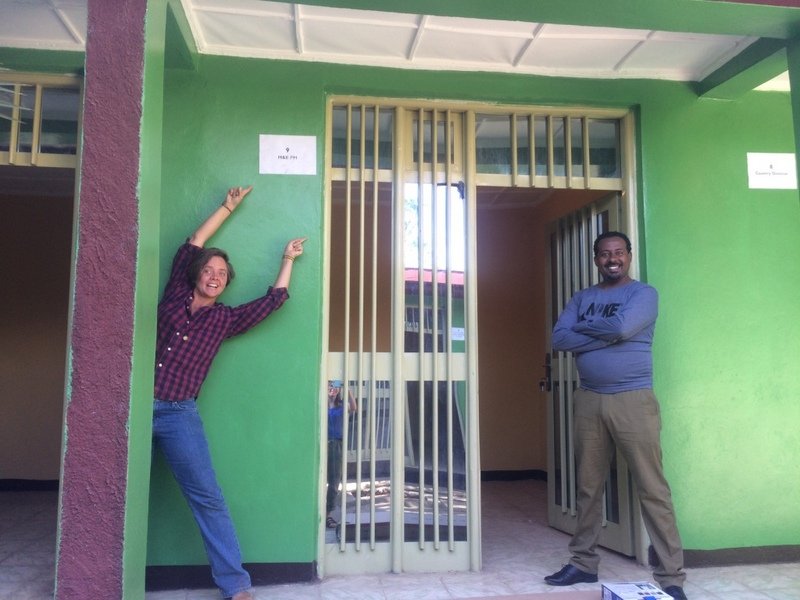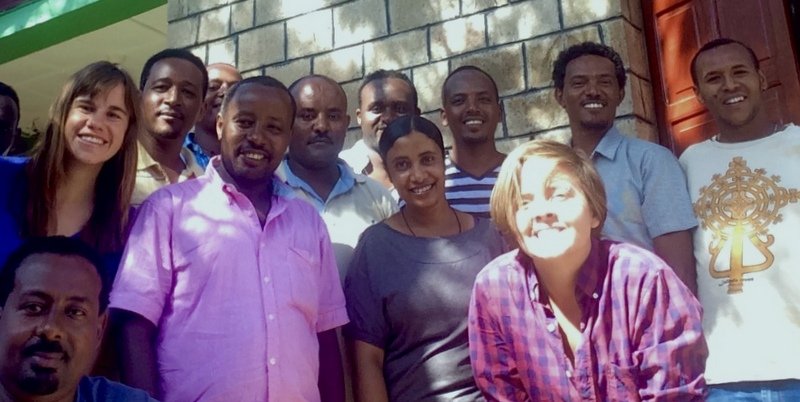In 2014, Nuru Ethiopia (NE) started its agriculture program in a single woreda (district), Boreda Woreda, in the Southern Nations, Nationalities, and People’s Region of Ethiopia. During its inaugural year, NE offered its agriculture program across 3 cooperatives and saw yield increases of 84%. Much has happened in the last three years, including the design and rollout of the remaining programs – financial inclusion, healthcare, and education – and an expansion to 21 total cooperatives across two woredas. In 2017, NE is continuing its steady growth trajectory by expanding to a third woreda, which will allow it to combat poverty alongside even more farm families.
As part of this preparation, NE recently moved its head office to Arba Minch, the capital town of Gamo Gofa Zone, in April 2017. The headquarters move to a larger town is a first for any Nuru project and, while not without challenges, it has delivered several benefits to NE.
Scaling and Access
Moving from one centralized field office to an HQ office with three planned field offices has presented an opportunity for NE to learn about how to manage operations as the organization grows. Even as NE preps to scale to a third woreda, the area of operations is still relatively small in comparison to the entirety of Ethiopia. Helpfully, all three woredas are adjacent to each other. Setting up the systems and structures for effective satellite management now will afford Nuru Ethiopia the experience needed for future growth to new regions of Ethiopia – those even farther out from the initial field office.
Setting up an HQ office in Arba Minch also presents more immediate, practical, and efficient benefits. The topography throughout NE’s area of operations presents challenges as terrain is steep and roads are unpaved. This challenge always increases with the onset of the rainy season as roads frequently become muddy and impassable. However, now that NE’s management team is located in Arba Minch, there are multiple roads to the three woredas, which will ensure the team can make it out to the field and back during even the most challenging times of year.

M&E Program Specialist, Rebecca Farmer; and M&E Program Manager, Tatek Amataw; explore the new M&E office in Arba Minch.
Partnership
When working in community development it is important to coordinate and work with various stakeholder groups. While NE’s farm families are the most important stakeholder, ensuring success and sustainability for farm families often requires linking them to various partners. For example, NE currently works with Hidota Cooperative Union, which buys and sells produce from Nuru-supported cooperatives. This critical market linkage service would be difficult to access if not for partnering with Hidota. By relocating the head office to Arba Minch, the NE team will gain significantly more access to potential partners including government offices like the Ministry of Agriculture, other NGOs, and for-profit companies interested in working with farmer cooperatives.
Staff Retention
NE is on track to exit all expatriate field staff by mid-2018. In order to accomplish this crucial organizational priority, it is essential to ensure the organization is run by top Ethiopian professionals. Living and working with the community has helped the staff to understand the challenges faced by farm families on a daily basis, to work together to develop solutions, and to fine tune interventions to produce more beneficial services and better outcomes.
Yet, staff turnover at the manager and director level has been a major challenge for NE over the last few years. In mid-2016, NE hired an HR consulting firm to make recommendations about how to improve staff retention. Their findings indicated that the location of the office and quality of life in Boreda Woreda is a major hurdle to recruiting and retaining experienced Ethiopian professionals. Although the head office is moving to a more urban area, NE is taking steps to ensure all staff still get out to the field each week and remain directly connected to the work going on in the field. This field focus and belief that staff must deeply connect with and understand the communities they serve will always remain a core tenet of NE’s organizational philosophy, even as it grows and adapts to new conditions and geographies. If these critical staff retention issues were left unaddressed, it would be unlikely that Nuru Ethiopia could retain top talent and leaders to drive the organization toward its mission of ending extreme poverty.
The move to a hub and spoke office structure was a first for NE and some remote management and communication systems are still being developed and strengthened. Ethiopia has one of the biggest populations of small scale farmers in the world and its astonishing topography of highlands and lowlands means scaling and satellite management will never be an easy task. But by taking this first leap, NE is setting the stage for the Ethiopian team to grow the organization to new corners of the country and deliver community-led, professional programs which will bring even more farm families out of extreme poverty.


